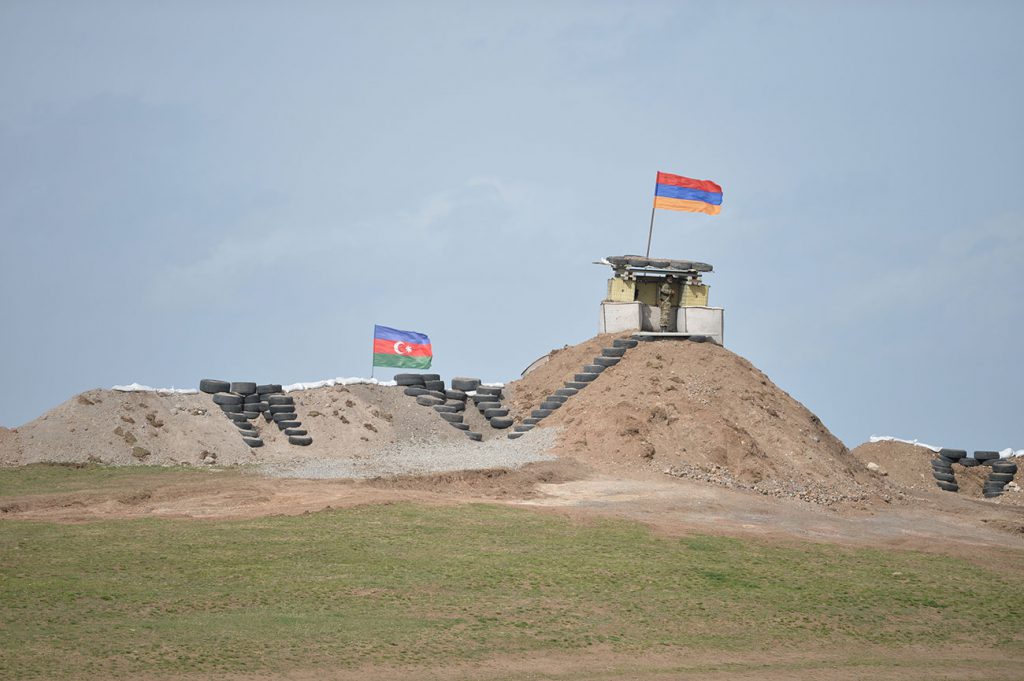Tensions on the Armenia-Azerbaijan border and in Nagorno-Karabakh have continued to flare, with both sides accusing each other of ceasefire violations daily for over two weeks.
At least two Armenian soldiers were wounded on the border with Azerbaijan in the past week, while the authorities in Nagorno-Karabakh have reported civilians being targeted by the Azerbaijani troops.
The most recent statements came late on Wednesday, with the Armenian Defence Ministry accusing Azerbaijan of violating the ceasefire and reporting that a conscript was injured. The news came as leaders of the Collective Security Treaty Organisation (CSTO), including Russian President Vladimir Putin, gathered in Yerevan for a summit.
In Nagorno-Karabakh, the authorities and the Russian peacekeeping mission have repeatedly reported ceasefire violations, including the targeting of civilians near the line of contact. One person was wounded last week and an agricultural vehicle was damaged.
The Azerbaijani Defence Ministry has denied all accusations and accused Armenia and Nagorno-Karabakh of violating the ceasefire.
On Monday the Azerbaijani Defence Ministry said that ‘illegal Armenian armed groups’ violated the ceasefire in the direction of Fizuli and Khojavand, from positions where Russian peacekeepers are stationed.
On Tuesday, the ministry accused Armenian forces of opening fire in the direction of the Kalbajar and Dashkasan regions of Azerbaijan on the border with Armenia.
The ministry also claimed on the same day that they had discovered an area that had been mined by Armenian forces near the Lachin corridor in Nagorno-Karabakh.
‘As a result of demining measures carried out in the area, 350 anti-personnel mines […] produced in Armenia in 2021 were discovered and neutralised’, their statement said.
Azerbaijani Human Rights Commissioner Sabina Aliyeva appealed to the international community regarding the mined area.
‘We strongly condemn these actions, which cause a great blow to stable peace and security in the region and hinder the extensive reconstruction.’
‘Once again, we call on international organisations to take a firm stand against Armenia’, the appeal said.
Artak Beglaryan, an advisor to the State Minister of Nagorno-Karabakh, wrote on Twitter that anyone whole believed Aliyev’s ‘peaceful’ promises ‘should keep in mind that their Armenophobic fascist policy is continuous and decades are needed to eradicate it from the Azerbaijani society even in the case of political will’.
Following fighting between Armenia and Azerbaijan in September during which Azerbaijani forces entered Armenian territory, the European Union deployed a group of 40 civilian observers to monitor the situation from the Armenian side of the border. The mission has remained silent on the claimed ceasefire violations.
For ease of reading, we choose not to use qualifiers such as ‘de facto’, ‘unrecognised’, or ‘partially recognised’ when discussing institutions or political positions within Abkhazia, Nagorno-Karabakh, and South Ossetia. This does not imply a position on their status.




 24 November 2022
24 November 2022



